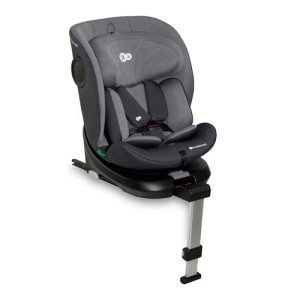7 Things You've Never Knew About Pram Or Pushchair
Pram or Pushchair: A Comprehensive Guide for New Parents
Picking the ideal mode of transportation for young kids is one of the first significant decisions brand-new moms and dads face. With Pram Shops on the marketplace, the dispute between prams and pushchairs can be bewildering. This article will offer in-depth insights into the distinctions in between prams and pushchairs, their specifications, advantages and drawbacks, and what to think about before purchasing.
Comprehending Prams and Pushchairs
At its core, the choice between a pram and a pushchair lies in their style and meant usage.
Meanings:
Pram: A pram, brief for “perambulator,” is designed mostly for newborns. It features a flat, carrycot-style seat that permits the baby to rest entirely flat. Prams are typically more glamorous and are meant for transferring infants who are not yet sitting up independently.
Pushchair: A pushchair, likewise understood as a stroller, is created for older infants and toddlers who can sit up. Pushchairs generally have an upright seat and may not recline completely flat, although many designs now offer adjustable reclining options for comfort.
Key Differences:
Feature
Pram
Pushchair
Age of Use
Newborn to about 6 months
6 months to 4 years or more
Seating Position
Flat, lying down
Upright or somewhat reclined
Weight
Typically heavier
Usually lighter
Portability
Less portable due to weight
More portable and easier to fold
Use Case
Short strolls, leisurely walks
Daily usage, errands, longer getaways
Advantages and Disadvantages
Pram
Advantages:
- Comfort for Newborns: Provides a flat surface conducive to a newborn's developmental needs.
- Stylish Designs: Many prams come with sophisticated designs, providing a touch of luxury.
- Storage Space: Sometimes include bigger storage options listed below.
Drawbacks:
- Weight: Generally much heavier and bulkier than pushchairs.
- Restricted Usage: Suitable just for newborns and babies who can not sit up.
Pushchair
Benefits:
- Versatility: Suitable for older babies and toddlers, typically accommodating them for numerous years.
- Light-weight and Portable: Easier to fold and transfer, making them ideal for busy parents.
- Configurable Options: Many pushchairs have adjustable seats and attachments for car seats and carrycots.
Drawbacks:
- Comfort for Newborns: Not constantly appropriate for infants in the early months without an appropriate insert.
- Less Luxurious: Often perceived as less elegant compared to prams.
Making the Right Choice
When it comes to choosing between a pram and pushchair, several elements need to be considered:
1. Way of life:
- If parents frequently make long journeys or choose strolls, a pram might be preferential.
- If they require to navigate through city streets or take public transportation, a lightweight pushchair may be more suitable.
2. Spending plan:
Pricing can differ extensively. Understanding Pram Vs Pushchair will help focus on alternatives that satisfy both visual and useful criteria.
3. Versatility:
Some progressive services include travel systems that allow moms and dads to shift from a safety seat to a pushchair with the exact same base, using maximum flexibility.
4. Storage Space:
A pram may take up more room in an automobile or in the house, while a pushchair's ability to fold down can be a substantial advantage in tighter spaces.
Frequently asked questions
Q1: Can I utilize a pushchair for newborns?
A1: Some pushchairs feature bassinet accessories or fully reclining seats, making them appropriate for newborns. Nevertheless, it's essential to check the specifications before use.
Q2: How do I choose the right model?
A2: Consider your way of life, budget plan, and the features you prioritize, such as weight, mobility, and storage options.
Q3: Are prams and pushchairs safe for my baby?
A3: Yes, both prams and pushchairs are designed with safety features. Try to find models with a 5-point harness, sturdy brakes, and safe and secure frames.
Q4: How long can I use a pram for?
A4: A pram is generally appropriate until a baby can stay up unassisted, typically around 6 months.
Q5: What are travel systems?
A5: Travel systems are mixes of a vehicle seat and a pushchair that work in tandem, allowing for simple shifts from cars and truck to pushchair without needing to eliminate the baby.
Picking in between a pram and a pushchair eventually boils down to the requirements and lifestyle preferences of each household. Prams provide comfort and design for infants, while pushchairs provide flexibility and ease for older babies and toddlers. By thoroughly considering individual circumstances and requirements, parents can make an educated choice that will make sure safe and satisfying trips with their children.
In the end, whether one go with a stylish pram or a useful pushchair, the main goal remains the exact same— ensuring convenience and security for the kid while facilitating convenience for moms and dads.
